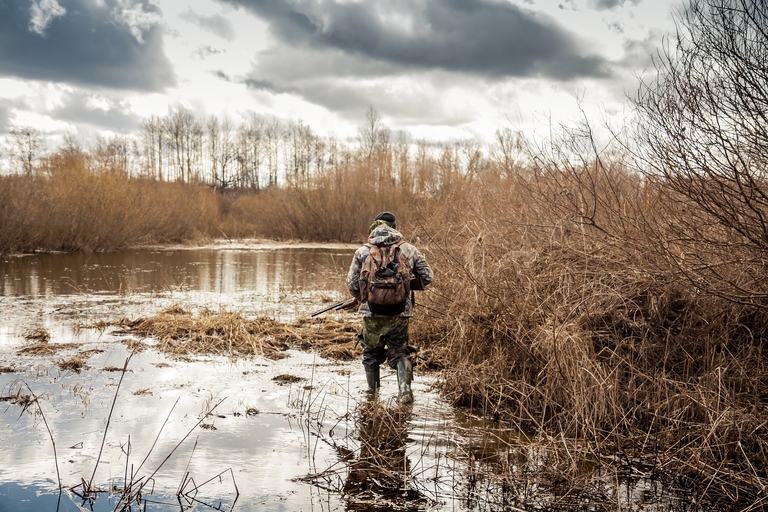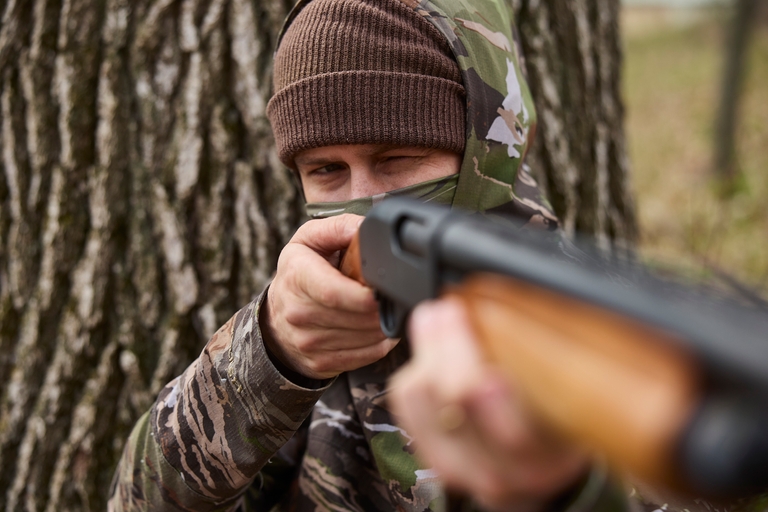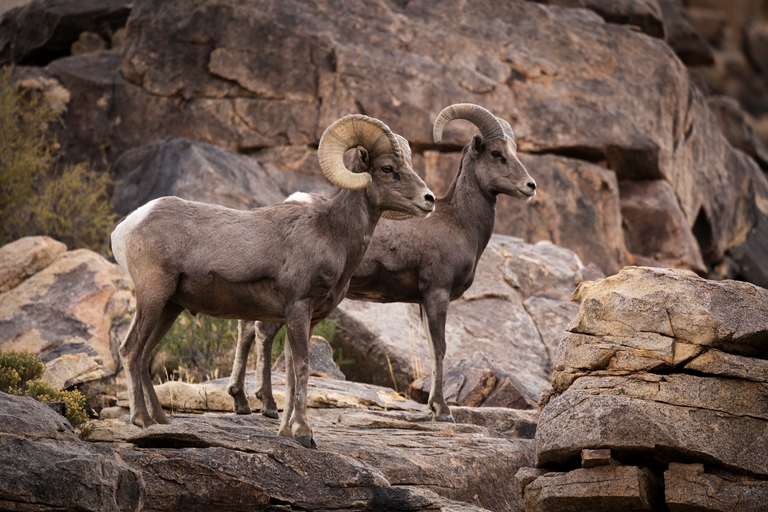Hunter Education: How Should We Talk About Hunting?
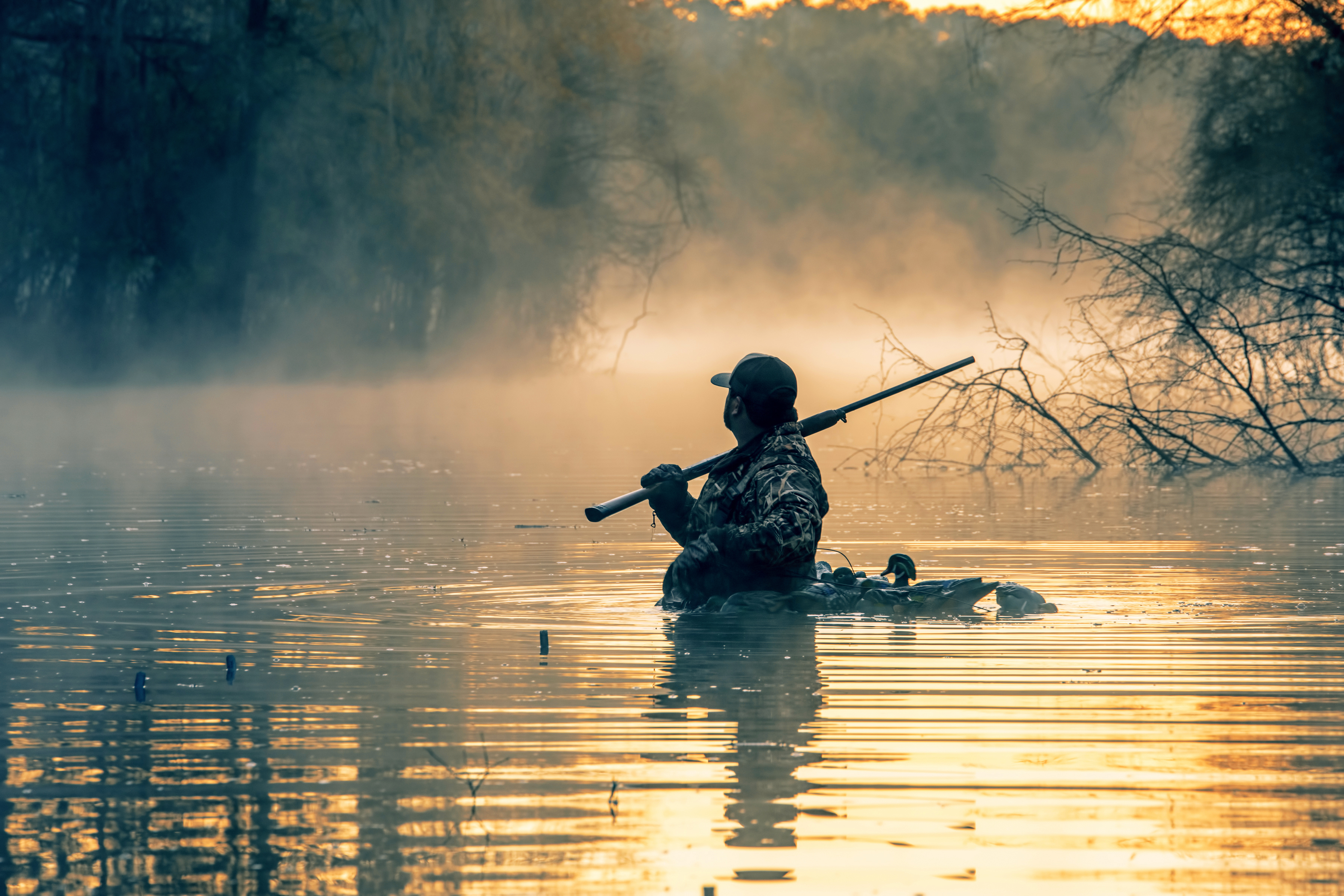
One of the hardest things for a hunter to do is explain to a non-hunter how you can love and respect animals for their beauty and grace . . . but also kill and eat them.
Stalking a deer through crunchy leaves, calling in a big tom turkey at the end of the season, and facing down a charging Cape buffalo are all difficult tasks. Then, helping to keep hunting a protected right in a society that understands it less and less is a tough responsibility that we all must consider diligently.
How should hunters approach the hunting conversation with non-hunters? Is hunting ethical? Do we need to "defend" what we do? Keep reading for some insights into how hunters can help non-hunters understand what we do and why we do it.

A Disturbing Trend
There has been a disturbing trend developing in the last decade or so of using war or "battlefield" terminology to name products and talk about hunting.
However, hunters generally don't feel any "rage" when hunting a big buck, and we don't want to "eliminate" a flock of mallards over decoys – but those words often turn up in advertisements in hunting magazines.
Using words like "killzone," "ambush," and "ruthless" to describe hunting or hunting products tells non-hunters that we see ourselves as violent people who are waging war on animals.
We Don't Celebrate Killing
We all know that certain aspects of hunting are necessary but not something we celebrate — blood and guts being the primary ones.
Killing is a natural part of our hunting world and an everyday part of every wild animal's world. But, to people who don't join us in our pursuit – and who might, in fact, try to restrict hunting because they don't agree with us – using words that portray violence or "war" on animals is going to work against us in the long run.
We need to use words, images, and thoughts that respect animals and show that we are ordinary, even non-violent people. Hunting is a family-oriented activity, and it has always been because the tradition of hunting comes from providing daily food for families.
We Don't Use "Weapons"
Some of the crossovers of battlefield language come from using tools also used in war – speaking of rifles, of course.
Guns can be used in three ways: defensively for self-protection, aggressively during war (or by criminals), and for hunting or target shooting, which is neither aggressive nor defensive.
At Hunter-Ed, we don't call a firearm a "weapon" because we are not attacking or defending when we hunt. Our hunting AR-15s and bolt-action rifles have a military pedigree, and perhaps we've incorporated the military language as a result.
If so, we need to think a little harder about what we're saying. The general public already has a tough time understanding that ARs are useful for hunting and target shooting, so the more we keep them from being seen as "violent," the better for us as hunters.
Remember Our Hunting Roots
Remembering our roots as hunters is really helpful in reminding us of how to talk and think about hunting.
In Europe, when a hunter is successful, they will put a sprig of grass or a green branch in the animal's mouth, sending it off with a "last meal" or "last bite" as a sign of respect.
Native American hunters offered prayers of thanks and sprinkled cornmeal or tobacco around an animal's mouth; these were very valuable resources and showed a "trade" for the animal's life.
Today, many American hunters have adapted those traditions and made some of them their own. At the core of all this tradition is respect for animals and even acknowledging a little bit of regret when we take one of their lives.
As long as we think of animals as special, we won't talk about them–in advertisements, on Facebook, or in hunting videos – as if they are our enemies or our victims. Hunting is a right, but it's also a privilege, an honor, and a responsibility.
We should never, ever forget that.
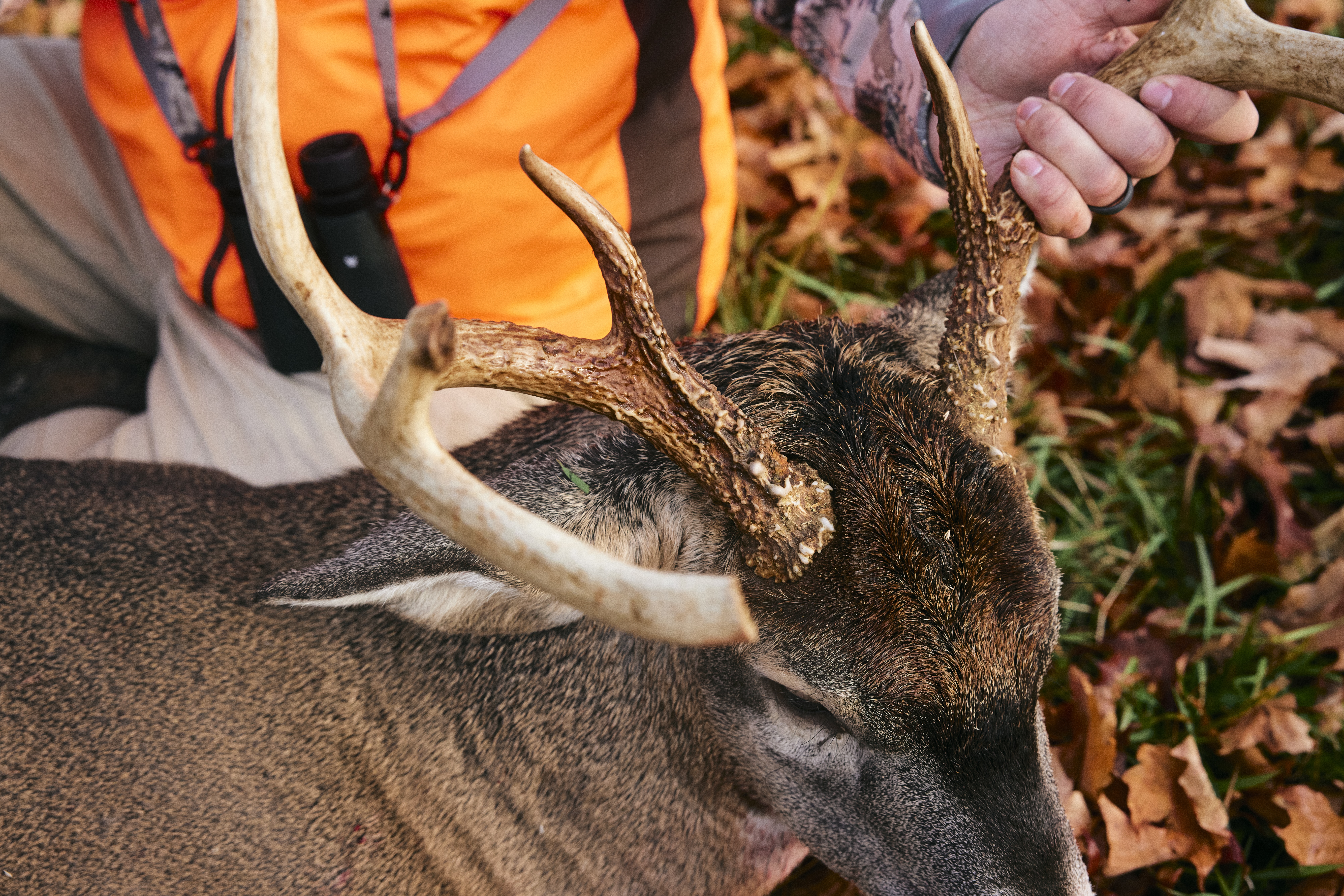
Hunter Education Can Help You With These Conversations
One of the things you'll learn in a Hunter-Ed course is hunter ethics and responsibility. Along with essential safety principles and best practices, we hope to instill in each hunter an understanding of why we hunt, how to respect natural resources, and an appropriate code of conduct.
A Hunter-Ed course not only prepares you to hunt safely every season but can also help you talk with non-hunters about the tradition of hunting and what it means to hunt your own food and respect wildlife. You'll be ready for hunting season and for constructive conversations with friends, family, and your community.
Find the course for your state and start learning!
Originally published December 17, 2013. Content updated April 4, 2024.

